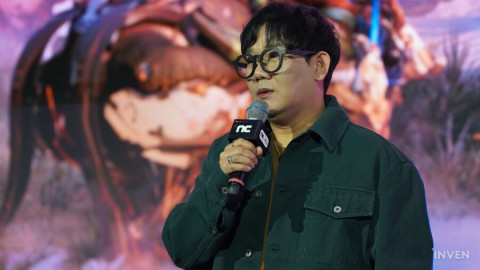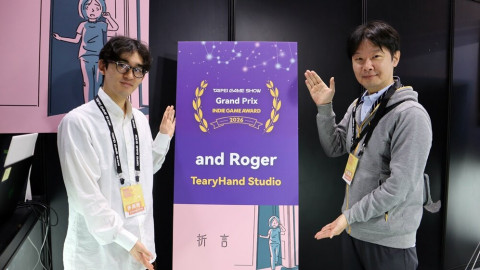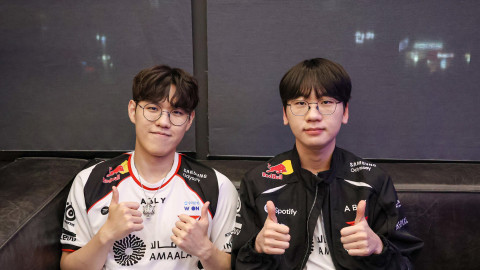
On Tuesday, May 1, Inven Global held the first IGEC-ESPORTS DEEP DIVE for enthusiastic esports fans and related parties at UC Irvine in California. Those who could not attend the event in-person missed out on the action as industry insiders discussed a wide range of topics in panels/discussions throughout the day. Below, a recap of the discussion held by Andrey “Reynad” Yanyuk, CEO and Founder of Tempo Storm.
During IGEC 2018, Reynad held a panel entitled "Misconceptions about the Business of esports". It was an unfiltered looking into his biggest criticisms and counter-arguments against popular thinking surrounding esports and was a sobering dose of realism in an industry often filled with hype.

One of Reynad's first points was about the very term “esports” and how it is being overused when it comes to the gaming industry due to over excitement and hyped up mentality. He referenced an anecdote regarding a recent trip to the Philippines where a young fan talked about his consumption of Ninja's stream, other Twitch streamers and Battle Royale games as esports content:
“This wasn’t a 50-year old investment banker that’s learning what esports is for the first time this year. This is a kid who grew up with gaming, but to him, the word “esports” was synonymous with gaming content -- someone in a room playing a video game and just talking to their audience."
He continued by explaining how common it is for investors to focus on the overall viewership numbers of a game on Twitch when planning which game is popular to invest in, instead of focusing on the number of esports viewers, a drastically different number and metric.
“People are taking a viewer of PewDiePie or Summit and are considering that as part of the esports ecosystem when they approach it from a business standpoint.”

To Reynad, this is deeply problematic and doesn't represent reality. A reality in which he firmly believes that "the vast majority of gaming content consumers don't care about esports" and how investors are making poor decisions by not understanding this.
Reynad explains these thoughts by offering a theory that esports is all cyclical. He points out that the platform games are played on, the genres, and even the games themselves are constantly changing. He is quick to note that this isn't a criticism on the games being of poor quality, but more about how a game's viewership has "the fat trimmed" overtime and always is left with a smaller core audience
The real estate play
Reynad has talked to a lot of investors over the years and a core portion of his talk was about the mistakes they frequently make. Building upon his previously mentioned theory of how esports titles are all cyclical, Reynad explains how a lot of investors make a "real estate play" and expect the value of their esports investment to appreciate over time. He warns against this type of strategy, simply stating that they rarely get their money back.
The entire talk is candid: "Look at MOBAs" Reynad says before he muses about how the previously most popular genre now has its viewership moving elsewhere. "Did anyone care about Fortnite three months ago?" It's a rhetorical question, but a good one.
Core view base remains
Reynad describes League of Legends as moving into "Stage 3" of its cyclical nature. The stage where hype is falling off, but the core viewer base remains. At this stage, LoL is not worthy of a $10 million investment and, according to Reynad, no games are the exception to this cycle, regardless of how popular they are at the moment.
Even Overwatch, Blizzard's shining esport on a hill was not safe from Reynad's critical approach to esports investment. He argues that the investments made into the Overwatch league are "very poor" from a financial standpoint, once again citing the unpredictability in esports trends and how Overwatch esports viewership numbers have no real reason to grow.
“For investors getting into the space, the question shouldn’t be ‘What game do I get involved in?’ but, ‘When do I get involved? With which game and how?’”

Culture and Influence
Reynad also talked about the nature of esports celebrities and how, despite how many people in the gaming joyfully tout how the industry has grown much faster than it's competitors, esports and gaming are still unable to create icons that shape culture and influence the world. Esports icons have a short shelf life and this is a problem.
In one memorable moment, he asked the audience who "the Kobe Bryant" of esports was. The most logical answer was LoL's Faker, and Reynad expected it, quickly reminding the audience of Faker's 5-year career compared to Kobe Byrant's 20. Although esports might be growing rapidly, the cultural influence and iconic nature of our stars have a long way to go.
He then questioned how many current esports fans know who esports legends like SlayerS_`BoxeR or Fatal1ty are, another critical reminder of how quickly the pendulum swings in esports.

Later in the day, fans and UCI students had a chance to meet with Reynad during a signing event. Reynad was joined by Hearthstone world champion Kranich and League of Legends veterans MadLife and Shy. Contrary to his salty reputation, Reynad chatted at length with his fans, answering questions and offering more advice to those looking at getting started in the esports industry and maybe forming a Tempo Storm of their own.

-

Warcraft 3 is my one true love and I will challenge anyone to a game of Super Smash Brothers Melee.
-

Tim Rizzo is the editor and a reporter for Inven Global. He joined the company back in 2017.
Sort by:
Comments :2
-
0
level 1 ItzDodrio
Good article, but just wanted to point out that Kranich is not a Hearthstone World Champion, he has made it to the World Champion Stage, but he never won.
-
0

level 1 Genryou
"He then questioned how many current esports fans know who esports legends like SlayerS_`BoxeR or Fatal1ty are"
I agree with the point that fans easily forget things from the scene, although, I gotta say not because you watch esports, it means you know all the esports, watching Starcraft or Counter Strike or League of Legends, it's like following 3 different traditional sports, as a sport fan you might watch most of them, but, being one it doesn't mean you're following all the sports.





